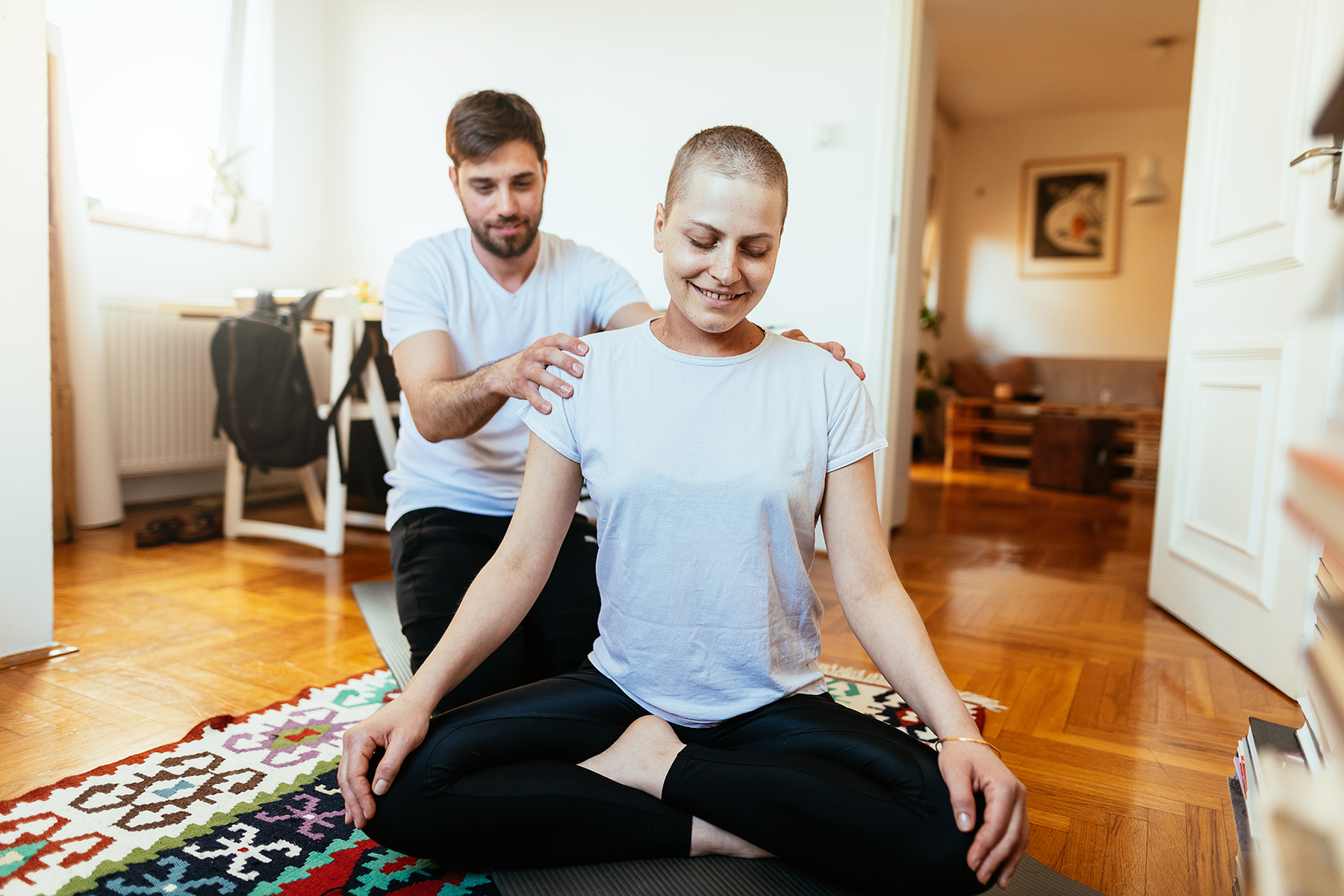What is Oncology Massage?

“Hi, I’m Karen and I’m not here to poke or prod you. I’m here to give you a free massage.”
Karen Lipay, a licensed massage therapist at Sylvester Comprehensive Cancer Center, is one of the therapists at Sylvester’s Cancer Support Services who are certified to provide massage tailored to people with cancer.
“Oncology massage in a hospital setting is relatively new, but the American Cancer Society and hospitals around the nation are seeing how it helps patients,” Lipay says.
Massaging the hands and feet of patients, the therapist watches them relax and breathe deeper. This helps the patient’s overstressed nervous system function better.
Massage may also alleviate neuropathy or nerve damage cause by medication. One patient who followed Lipay’s advice to get daily hand and foot massages from her husband, believes she avoided neuropathy because of massage. Another noticed an immediate improvement in her lymphedema (swelling) after Lipay massaged her feet. Other patients say they sleep better, too.
According to the American Cancer Society, studies suggest that massage reduces stress, anxiety, depression, and pain and increases alertness in people with cancer.
After a cancer diagnosis, even the simple act of a getting a massage becomes more complicated.
“Just as you would expect your nurse to have oncology training, your therapist should be certified to work with cancer patients,” Lipay says.
Oncology certified therapists are trained to understand the changes brought about by the disease and its treatments.
“Oncology massage uses an extremely light touch. It looks simple, but as I work, I’m aware of many things. The patient may have a low red or white blood cell count that increases risk of infection or soft tissue damage. I must avoid the port, tumor and surgery sites. There may be lymphedema in the arms and legs or possible blood clots. The skin may be drier and more sensitive, requiring hypoallergenic, fragrance-free massage oils. Oncology massage considers all of that.”
Patient precautions
People with cancer should never have deep tissue work on the body (even several years after diagnosis or in remission). But, it has been well-documented through research that gentle, comfort-oriented massage does not contribute to the spread of cancer.
“Studies have found no measurable increase in circulation after massage,” Lipay says.
If you or someone you know would benefit from massage, Lipay recommends speaking to your oncologist first. If cleared for massage, find an oncology certified therapist on the American Massage Therapy Association website or the Society for Oncology Massage website. It takes a little extra effort to find the right person, but the rewards are worth it.
Massage is just one aspect of Sylvester’s Cancer Support Services for patients and their caregivers. To learn more, go online or call 305-243-4129.
Nancy Moreland is a contributor to UMiami Health News. She has written for several major health care systems and the Centers for Disease Control and Prevention. Her articles also appear in the Chicago Tribune.
Tags: cancer, Karen Lipay, lymphedema, massage for cancer patients, massage therapist, massage therapy, neuropathy, oncology massage, Sylvester Comprehensive Cancer Center
